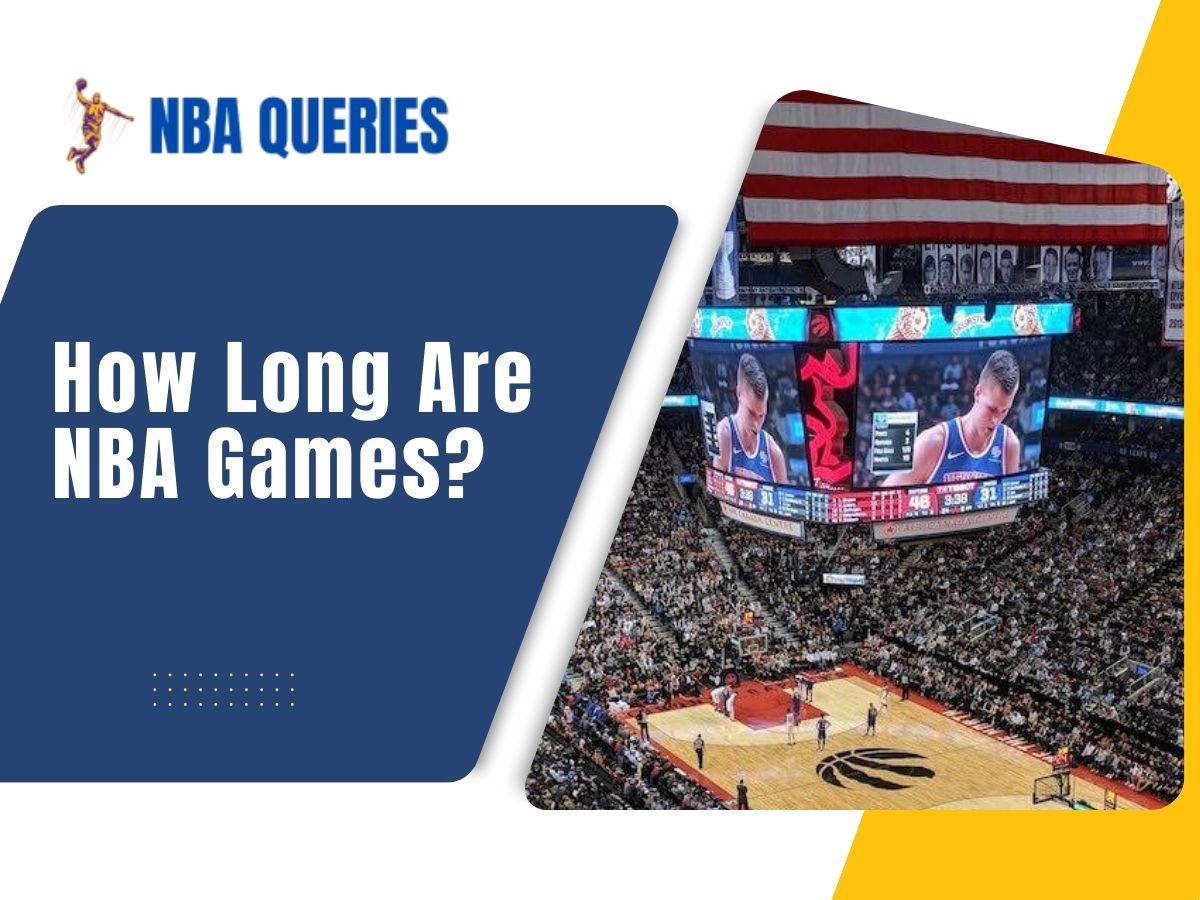NBA games are a thrilling spectacle, combining athleticism, strategy, and passion. But how long do these high-octane battles on the hardwood actually last? In this article, we’ll delve into the intricacies of NBA game length, exploring factors that influence it and providing valuable insights for basketball enthusiasts.
1. The Basics: NBA Game Duration
An NBA game consists of four quarters, each lasting 12 minutes. Simple math would suggest that the total game time is 48 minutes. However, the reality is more nuanced. Let’s break it down:
- Regulation Play: The actual time spent in active play—when the ball is in motion—is less than the 48-minute mark. Fouls, timeouts, and other stoppages contribute to the game’s overall duration.
- Commercial Breaks: Television broadcasts include commercial breaks, which extend the game. Nationally televised games tend to be longer due to additional commercials.
2. Crunching the Numbers: Average Game Length
To understand the average NBA game length, we analyzed data from the 2015/16 season up to the 2021/22 season. Here’s what we found:
- Regular Season: The average NBA game in the 2021/22 season lasted 2 hours and 13 minutes. This calculation excludes games that went into overtime.
- Consistency: Game length has remained relatively stable since the 2016/17 season, fluctuating between 2 hours and 12 minutes and 2 hours and 14 minutes.
- Rule Changes: The NBA implemented rule changes in the 2021/22 season to speed up game endings. Despite these changes, the average duration increased by 1 minute. Close games (decided by 5 points or less) showed no significant reduction in length due to the new rules.
3. Close Contests vs. Blowouts
The final score difference significantly impacts game length:
- Close Games: Those decided by 5 points or less average 2 hours and 18 minutes. The tension and strategic timeouts contribute to the extended duration.
- Blowouts: Games with a margin of 30 points or more are 10 minutes shorter on average. When the outcome is clear, the clock runs faster.
4. Overtime Drama
Overtime (OT) adds extra excitement but also extends game time:
- Single Overtime: An OT game lasts around 2 hours and 35 minutes, adding approximately 22 minutes to regulation time.
- Double Overtime: Expect an OT2 game to run about 2 hours and 55 minutes.
- Triple Overtime: Rare but thrilling, these games average 3 hours and 3 minutes.
6. Playoffs: A Different Ballgame
The NBA playoffs are a thrilling postseason spectacle. But how do they affect game length?
- Extended Battles: Playoff games tend to be more intense, with tighter defenses and strategic adjustments. As a result, they often exceed the regular season average. Expect an average playoff game to last around 2 hours and 20 minutes.
- Overtime Intensity: Playoff overtime games are even more gripping. A single OT in the playoffs adds approximately 25 minutes to the clock, while double and triple overtimes can stretch the game to 3 hours or more.
7. Halftime and Pregame Rituals
The halftime break is essential for players’ rest and adjustments. Here’s how it impacts game duration:
- Halftime: The halftime break lasts 15 minutes. Players retreat to the locker room, coaches strategize, and fans grab snacks. It’s a crucial intermission that contributes to the overall game time.
- Pregame Warm-ups: Before tip-off, players engage in warm-up routines. These rituals, including shooting drills and stretching, add another 20 minutes to the pregame clock.
8. Timeouts and Commercial Breaks
Coaches strategically use timeouts to discuss plays, rest players, and halt opponents’ momentum. Here’s the breakdown:
- Regular Season: Each team has 7 timeouts during regulation play. These timeouts, along with mandatory TV timeouts, extend the game. On average, timeouts account for about 15 minutes.
- Commercial Breaks: Television networks air commercials during timeouts, quarter breaks, and halftime. These breaks add significant time. Nationally televised games have more commercials, impacting the overall duration.
9. Fouls and Free Throws
Fouls and free throws are integral to the game but contribute to its length:
- Fouls: When a player commits a foul, play stops. Referees assess the situation, players shoot free throws, and the clock pauses. Accumulated fouls add up.
- Free Throws: A single free throw takes about 15 seconds. Multiply that by the number of free throws attempted, and you’ll see how it affects the game.
10. The Unpredictable Overtime
Overtime scenarios are unpredictable and exhilarating. They occur when the score is tied at the end of regulation. Brace yourself for additional minutes of heart-pounding action.

